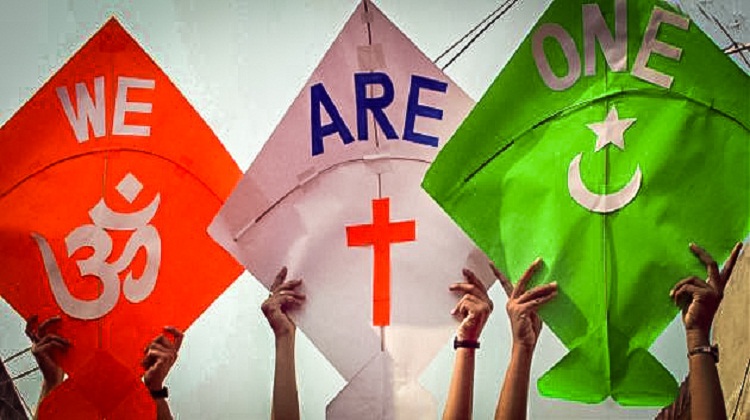
Will Secular India Survive? This was the title chosen for an anthology edited by historian Mushirul Hasan, published in 2004. Twelve years later the question seems to be relevant to a greater degree and needs to be answered with a sense of urgency. Searching for a convincing answer, we have to assess how far had India been made a secular state when after independence it had adopted a constitution, and how far was secularism so embraced practised by the custodians of state authority till the beginning of the present dispensation at the centre.
The constitution ‘enacted, adopted and given to ourselves’ in November 1949 did not declare that India would be a secular state. Constituent assembly leaders like Nehru and Ambedkar were sure that by not proclaiming any ‘state religion’ and by enshrining in the constitution principles of citizen’s equality and non-discrimination on the ground of religion they had put India on a secular footing.
To make things clearer, they had added a few more provisions in the constitution – religious freedom allowed to individuals and communities subject to specified conditions, no compulsion to pay tax for promoting any particular religion, no religious instruction at all in educational institutions wholly maintained out of state funds, and no compulsory religious instruction or worship in other recognized and aided institutions.
Democracy being a game of numbers, to protect religious minorities from a highly probable hegemony of the predominant majority in respect of educational development they included in the constitution a fundamental right – notably, unlike other such rights, unqualified – to establish and administer educational institutions of their choice.
The constitution-makers did not enshrine in the charter of governance produced by them any ‘non-establishment’ clause or a ‘wall of separation’ between religion and state, as under the US constitution. On the contrary they included in it a number of provisions essentially creating religion-state links — theological restrictions on entry into Hindu, Buddhist, Jain and Sikh religious institutions to be removed by law, cow and its progeny to be meticulously protected [due to the majority community’s reverence for the bovine as later acknowledged by the apex court], and the religious practice of wearing and carrying kirpans to be respected as a fundamental right of the Sikhs.
The party now ruling at the centre is translating into practice its own well known ideology. Communal vituperation by its partners in governance and atrocities by its followers in the society are being met with a calculated silence.
Within six years the constitution was amended to obligate the states of Kerala and Tamil Nadu to provide specified annuities for the maintenance of local dewasom temples. In the eyes of the constitution-makers these selective religious and community-specific provisions had no adverse effect on the secular character of the state. In 1976, fully retaining all of these, the constitution was amended to add the word ‘secular’ to the description of India in the preamble. From a sovereign democratic republic the nation was upgraded to the status of a ‘sovereign socialist secular democratic republic.’.
It was thus restrictive secularism, not absolute or unqualified, that the founding fathers of the constitution had opted for. From the very beginning the Congress party pursued this hybrid concept without caring for its inherent limitations. As a matter of its policies the community-specific religious provisions of the constitution gained an upper hand at the cost of diluting its mandatory principles of equality of, and equal protection of laws, for all citizens irrespective of religious persuasion.
The frequency of communal riots was not controlled with an iron hand. Educational rights of religious minorities were given the treatment of ‘constitution proposes government disposes.’ In mid-1960s the Congress government deprived the Aligarh Muslim University of its statutory autonomy and, on its action being challenged in the apex court, convinced the court that the institution had not been established by the Muslims. The process of social reform was restricted by it to some chosen communities, on the pretext that others were yet not ready for change.
The party now ruling at the centre is translating into practice its own well known ideology. Communal vituperation by its partners in governance and atrocities by its followers in the society are being met with a calculated silence.
There are no foolproof safeguards against these in the constitution; and there are precedents in the policies and practices of the Congress party which ruled the country for long years since independence, claiming exclusive credit for winning freedom from British raj. Its criticism of the present government is an instance of pot calling the kettle black.
(The author is Professor of Law & Former Chair, National Minorities Commission)